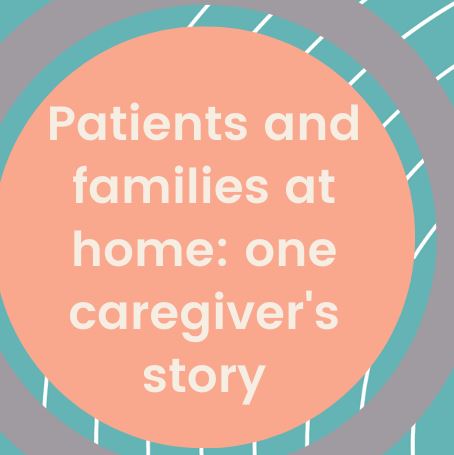“They guided us through everything; we were very well-trained and prepared, because we were there for 24-hour care.”
– Ron Osborne, caregiver
In October 2021, Ron Osborne’s father Jim went to the hospital several times. His health had been declining for a while, and after all his visits, a doctor told him that, if he chose to, he could go home — which meant going home to die.
That is what Jim Osborne wanted to do; he felt he was ready. But he didn’t have to be at home without any support. Ron and his brothers were there to help their dad, and so was the team at Centrica Care Navigators.
Ron says he and his brothers worked out a 24-hour schedule so that a family member was always available for their father. They coordinated with the hospice care specialists in the Centrica Care Navigators interdisciplinary group (IDG) to learn which services could be provided and when it would be most appropriate to receive them.
“The nurses would come in on Monday, Wednesday, and Friday; but if that wasn’t enough, make a phone call, and they would be there in hours,” Ron says. “They gave us advice on what we needed to do, the things that we could expect, and the things and services that Centrica could provide for us.”
Services any time they’re needed
It started with what might seem simple, but is essential to the comfort and high quality of life for a patient: bathing and bedding. Ron says he learned how to change the sheets and mattress covering, so that his dad was always in dry, clean sheets. The Centrica Care Navigators team gave Ron and his brothers instructions on how to administer medication, including appropriate amounts and guidelines on keeping the medications from mixing in a way that could be harmful.
Ron says he especially appreciated how the care team did everything it could to help his dad. He remembered a late-evening delivery of something his father needed. It didn’t arrive until about 7:00 p.m., only because it was a busy day for the team, and winter weather made driving tricky.
“They were like the post office — they were going to deliver that mail, one way or another,” he says. “We got what we needed to make my dad more comfortable.”
Time with family and friends
Jim Osborne was in hospice care with Centrica Care Navigators for more than six weeks, through the holiday season at the end of 2021 and into January 2022. Ron says he was surprised to discover that hospice wasn’t something that had to wait for the last few days of life.
Patients can enter hospice when they have been diagnosed with six months or fewer to live, so they can be in care for weeks or months before death. That can give the patient time to become comfortable with their new living arrangement, time they can spend with those closest to them.
That was something that was very important to Jim, Ron says.
“We would host poker games at my dad’s house ‘til wee hours of the night,” he says. “He just loved his family and friends to be around him.”
While comfort and care of a patient is the most important aspect of hospice, the IDG supports a patient’s caregivers, too.
“When they came, they were focused totally on my father first, and then whatever family needs that we had — any care items, or mental support, or any information that we needed to help us through the process,” Ron says.
All-around focus
That all-around focus, where Centrica Care Navigators’ skilled staff looks not only at what they can do for their patient, but also for the family and friends of that person, is something Ron says he wants everyone to understand.
Like many people, Ron didn’t know much about hospice before his father needed service. He says being able to receive care at home for several weeks helped make living with a serious illness more comfortable for his dad.
The best way to get started, he says, is simply to begin asking questions.
“I would reach out to someone in the medical field and ask them questions of, ‘What services are available to me?’” Ron says. “(Ask) how soon you’re able to start that process, because we had no clue, and were very surprised by what was available to us.”
You can learn more by exploring our website or calling Centrica Care Navigators at 269.345.0273.




